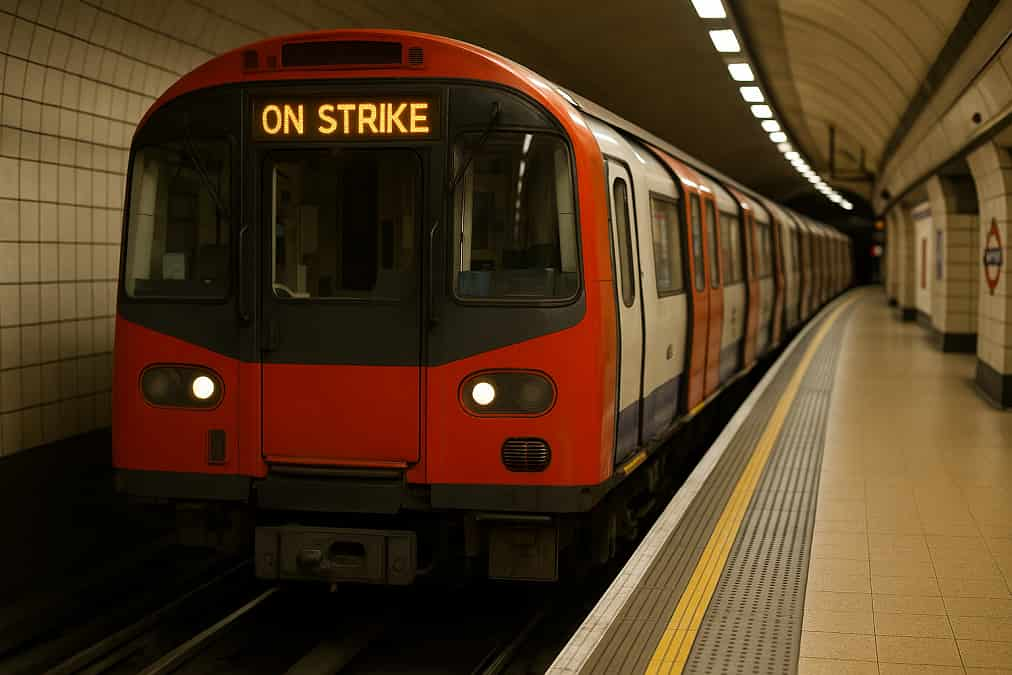Getting to work just got harder for workers as strikes cripple London Underground.
Travellers across the capital are bracing themselves for severe disruption this week as London Underground faces its most significant shutdown in years. Starting Monday (today), thousands of UK workers — including drivers, signallers, and maintenance staff — have launched a wave of coordinated strikes over pay and conditions.
Transport for London (TfL) has warned that there will be few to no services operating from Monday through Thursday. Limited services were already running on Sunday, but disruption levels are now set to escalate sharply. The impact will extend beyond the Underground, with no Docklands Light Railway (DLR) services running on Tuesday and Thursday, compounding the pressure on commuters.
TfL confirmed that no trains will operate before 8am during the strike days, with all passengers urged to complete journeys by 6pm. Buses are expected to bear the brunt of additional demand, but even with increased services, they are likely to be far busier than usual.
Pay dispute at the centre of the disruption
The dispute centres on a pay offer from TfL of 3.4%, which it has described as “fair.” Management has argued that demands for a reduction in the working week are unaffordable, estimating that cutting the 35-hour week further would cost “hundreds of millions of pounds.”
Nick Dent, London Underground’s director of customer operations, stated:
“Union demands for a cut in the 35-hour week are simply unaffordable. While we understand the concerns raised, we have been clear that the offer on the table reflects fairness and the financial realities we face.”
This industrial action marks the first Tube-wide strike in three years. However, this week’s disruption is expected to feel even more acute, as different groups of workers will walk out on different days, maximising the effect across services.
Impact on workers and commuters
For millions of workers in the capital, this week’s strike action means longer journeys, altered timetables, and increased reliance on alternative routes. With services halting before 8am, many shift workers and early commuters will find it particularly challenging to get to their workplaces.
The Workers Union has consistently adopted a no-strike policy, highlighting the need to balance fair treatment for staff with the continuity of essential services. Strikes of this scale shine a light on the pressing need for sustainable dialogue that delivers improvements without paralysing public transport networks relied upon by millions.
Preparing for the week ahead
Passengers are urged to plan ahead, leave more time for journeys, and check for updates before travelling. The knock-on effect across bus services, Overground, and other transport options is expected to create congestion across London. Employers may also see a surge in remote working requests as staff attempt to mitigate the disruption.
The strikes are a stark reminder of the pressures facing both workers and management in the public transport sector, where financial strain collides with the growing demands of a post-pandemic workforce.




